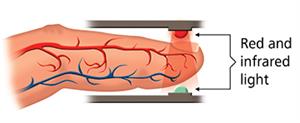An anti-snore pillow is a specially designed pillow that seeks to curb or even eliminate snoring.
These pillows aim to ensure correct alignment of the head, neck, and upper body to keep your airway open while you sleep.
They are available in a range of shapes and styles, with the wedge shape, contour design, and adjustable anti-snore pillows being among the most prevalent.
Understanding the Function of Anti-Snore Pillows
Snoring is the result of throat muscles relaxing during sleep, narrowing the airway and causing soft tissue to vibrate when air flows past, creating the characteristic snoring sound. Anti-snore pillows help sustain an optimal sleep position - usually side sleeping or a slight elevation of the head - that reduces the risk of airway obstruction and thereby minimises snoring. Some cutting-edge models even come equipped with sensors that adjust the pillow's elevation or tilt automatically upon detecting snoring.
The Upside of Anti-Snore Pillows
-
Reduced Snoring: The most significant benefit of an anti-snore pillow is its potential to decrease or even cease snoring, improving sleep quality for the person snoring and their sleep partner.
-
Better Sleep Quality: These pillows can enhance overall sleep quality by facilitating better breathing, resulting in increased alertness and productivity during waking hours.
-
Comfort: Many anti-snore pillows are crafted with memory foam or other soft materials that mould to your head and neck shape, offering comfort while you sleep.
-
Non-Invasive Option: Anti-snore pillows provide a non-invasive, cost-effective alternative to other snoring remedies like CPAP machines or surgical procedures.
Drawbacks and Considerations
Anti-snore pillows, though helpful in mitigating snoring, are not a universal solution.
Snoring could be a symptom of serious health issues such as sleep apnea, which require medical intervention.
Additionally, not every snorer will find relief with these pillows, especially if the root cause of their snoring lies elsewhere, like nasal issues or obesity.
When selecting an anti-snore pillow, take into account your usual sleep position, the materials of the pillow, and whether the design of the pillow suits your needs. Adjusting to a new sleep position may also take some time.
Can I Use an Anti-Snore Pillow With a Snoring Mouthpiece?
Yes, you can use an anti-snore pillow in conjunction with a snoring mouthpiece.
In fact, combining different approaches to address snoring can sometimes enhance overall effectiveness. Here are some considerations when using both:
-
Comfort: Ensure that the pillow and the mouthpiece are comfortable when used together. The mouthpiece may change the position of your jaw, which might affect your neck and head alignment. An anti-snore pillow is designed to provide optimal neck support and encourage a snoring-reducing sleep posture. Together, they might offer an enhanced solution.
-
Effectiveness: Anti-snore pillows aim to promote a sleeping position that opens up the airways, while a snoring mouthpiece works by moving the lower jaw forward or holding the tongue in place. The combination can target snoring from multiple angles, potentially making it more effective than using one method alone.
-
Adjustment Period: There might be an adjustment period as you get used to sleeping with both the pillow and the mouthpiece. It can take time to find the most comfortable and effective sleeping position.
-
Care & Maintenance: Just as you'll need to clean and maintain your snoring mouthpiece regularly, it's essential to keep your pillow clean and replace it when it starts to lose its shape or supportive qualities.
-
Consultation: Before integrating multiple anti-snoring devices, it's a good idea to consult with a healthcare professional or sleep specialist. They can provide guidance on the best combination of devices and ensure that you're addressing the root causes of your snoring.
Therefore, combining an anti-snore pillow with a snoring mouthpiece can be an effective strategy for some individuals.
It's essential to ensure that both devices are comfortable and well-maintained, and as always, seeking professional advice can help optimize your approach to reducing snoring.
FAQs
Do anti-snoring pillows work?
While anti-snoring pillows may not work for everyone, they can be effective for people whose snoring is mild or primarily due to their sleeping position. However, they may not be as effective for severe snoring caused by medical conditions like sleep apnea.
What kind of pillow is best for snoring?
The best pillow for snoring will vary from person to person. Generally, a pillow that helps maintain an open airway by promoting good alignment of the head, neck, and upper body is beneficial. This could be a wedge-shaped pillow, a contour pillow, or an adjustable anti-snore pillow.
Does sleeping with a neck pillow help with snoring?
Yes, a neck pillow can help with snoring. By providing proper neck support, these pillows can help keep your airway open, reducing the likelihood of snoring.
Is there a snoring device that moves pillows?
Yes, some advanced anti-snoring pillows have built-in sensors that detect snoring and then adjust the height or tilt of the pillow automatically to encourage better breathing.
What are some examples of anti-snore pillows?
The Nitetronic Z6 is an anti-snore pillow.
Closing Thoughts
Anti-snore pillows offer an innovative, non-invasive approach to mitigating an age-old problem.
Although they may not be the right solution for everyone, they can significantly improve the quality of sleep for individuals whose snoring is position-dependent or mild.
Remember to consult with a healthcare professional if you're dealing with persistent snoring to ensure that any underlying health issues are appropriately addressed.




